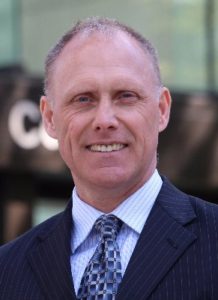Historians and theologians will debate Luther until the end of time. He remains controversial – think only of his views on the Jewish people or his justification of the brutal treatment of the peasants’ uprising. But make no mistake his posting of the Theses set off a chain of events that continue to affect us. Luther’s most dangerous idea – I agree with Alister McGrath – is that of individual freedom in religious matters. Not a new idea. Arguably, individual freedom existed since the time of Adam and Eve – each was responsible for their own personal actions and the consequences of such. But the social, political and economic pressures that existed at the time of Luther found their powder keg on the door of the Wittenberg Church. The Theses was the ignition that set in motion unstoppable change.
Religion matters. What we believe about the fundamental pre-suppositions of life guides our whole approach to life. If we believe that our salvation is dependent upon our relationship to God then we need no intercessor but Christ. While the church edifies and has its role for communal living it does not, cannot, be the determiner of our salvation. These were radical concepts in 1517. They also found their parallel in economics – individual freedom to pursue business, and in politics – one person one vote.
Rationalism matters. Many will note that human rationalism has played a negative role in the Luther legacy. The ability to rationalize is human. Both Adam and Eve rationalized their fatal mistakes as the fault of someone else – including God! Individual freedom is used to rationalize the rejection of any personal responsibility. No one is willing to be another’s keeper – not even our brother, or sister. We have become individual absolutists – to the point of narcissism. That was never Luther’s plan or desire. For Luther, the religious community still had a very important role to play in taming the innate push to radical autonomy. But modernity has forgotten that aspect of Luther
Making sense of Luther and his dangerous idea remains a legacy that we have to grapple with – at what point do we put a bridle on the individual? What is the place of the religious community? What is the place of secular state authority? These questions have to be answered for every succeeding generation.
The basic legacy remains: we all have an opportunity to take advantage of our freedom to think, believe and act on our beliefs for the betterment of our relationship with God and with our fellow human beings.
 Barry Bussey, Esq. serves as general counsel to the Canadian Counsel of Christian Charities, interpreting legal and regulatory environments and representing the Christian charitable sector to the wider Canadian society. Barry has earned advanced degrees in political science (MA, Memorial University of Newfoundland) and law (LLM, Osgoode Hall Law School). He is a recipient of the Queen Elizabeth II Diamond Jubilee Medal in recognition of his work to support religious liberty in Canada and abroad.
Barry Bussey, Esq. serves as general counsel to the Canadian Counsel of Christian Charities, interpreting legal and regulatory environments and representing the Christian charitable sector to the wider Canadian society. Barry has earned advanced degrees in political science (MA, Memorial University of Newfoundland) and law (LLM, Osgoode Hall Law School). He is a recipient of the Queen Elizabeth II Diamond Jubilee Medal in recognition of his work to support religious liberty in Canada and abroad.